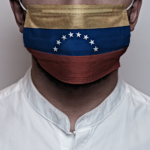All human beings naturally associate in social groups and depend upon the common good, the collective life of the whole. These groups and common goods take various forms, from the family and clan to the city or the nation-state. The government of any people has the basic responsibility to safeguard and nurture the common good, which entails the promotion of a range of particular goods, from physical utilities like water and electricity to cultural goods such as education, work, participation in the market, the cultivation of the university and the arts, the defense of the family as the first cell of society, and the protection and promotion of healthy and true religious practices.
Most fundamental of all is the state’s obligation to protect human life. This is the most basic good in civic society, without which all the others erode. Accordingly, any given culture must protect innocent life, and have some form of collective policing against crime and violence. Accordingly, the state has the right to punish crimes against life, and may also legitimately organize a military to protect the civic populace, even by means of just war.
In the face of a collective health crisis such as the COVID-19 pandemic, many public goods are put in jeopardy. First among these is bodily life and health: the illness appears to be approximately five times more deadly than the average annual influenza, and it poses a particular risk to the elderly and those with various pre-existing medical conditions. Nevertheless, other goods are at stake as well, including the right to work, the economic well-being of societies, the ongoing work of education, freedom of movement and self-expression, and public gathering for the worship of God.
Christians may wonder to what extent the modern constitutional secular state is capable of safeguarding rightly any or all of the particular goods put at risk in the COVID-19 pandemic.
Start your day with Public Discourse
Sign up and get our daily essays sent straight to your inbox.Christians may wonder to what extent the modern constitutional secular state is capable of safeguarding rightly any or all of these particular goods. After all, what good is a state that is unable to protect innocent human life from the evil of abortion, and that increasingly refuses to recognize the centrality of religious freedom and its right exercise for the good of the state?
The Civil State and the Common Good
Here, two observations should be made immediately that affect one’s reflection on this topic. First, we should note that, due to our collective nature as interdependent, rational animals, it must be admitted that only through some form of state means can any of these goods rightly be defended. In other words, there is only ever a political solution to questions like how many public health regulations should be imposed or whether educational institutions should meet online. In our context, governments will play an irreplaceable role in this process.
Second, although governments certainly can, and do, err seriously and often in the promotion of human rights, like the right to life, and in the safeguarding of a natural-law understanding of marriage, they do not err in all respects all the time. Governments, like human persons in general, are wounded but not radically depraved. As Aquinas notes in the Summa Theologiae, I-II, q. 94, a. 2, there are basic inclinations that remain in us even after the fall: inclinations toward the collective protection of human life, the love of sexuality and reproduction, the love and education of children, the pursuit of justice and friendship in society, and the promotion of the search for the truth and even the knowledge of God. These inclinations may be weakened, and there may be terrible ignorance about their proper applications, but civil governments cannot fully evade their obligation to be at their service. Indeed, states only ever succeed to the extent that they remain at their service in some respect.
The Hierarchy of Goods Has an Anthropological Basis
The state is obliged to promote human flourishing, but what is human flourishing? The answer one gives to this question depends on one’s understanding of human nature. There is an implicit philosophy of the human person behind every political principle or public policy, including those related to COVID-19. In modern culture, various philosophical intuitions and traditions are often woven together in competitive or incoherent ways.
There is an implicit philosophy of the human person behind every political principle or public policy, including those related to COVID-19.
The mainstream Catholic philosophical and natural law tradition rightly insists on a hierarchy among human activities and goods pursued, without positing an opposition between them or pure reduction of one to another. For example, the pursuit of nutrition and clean drinking water for a given community is a priority only in the fundamental sense. Without it one cannot exist. But while these goods are prior in the order of basic need, they are subsequent in the order of perfection. The human being does not live for bread alone, or merely for physical health, even if nutrition and health are fundamental.
To make this commonsense claim, however, one must appeal to a set of higher activities that characterize human flourishing, such as the pursuit of truth and contemplation, the love of virtuous friendship, the cherishing of children and family life, the pursuit of justice in society, the role of artistic and technical creativity, and the pursuit of union with God by way of knowledge and love of God. All these activities imply rationality and deliberate love, which are characteristic of the human person precisely due to his or her immaterial faculties of intellect and will, themselves indicating a spiritual principle in persons that is traditionally called the soul. The goods of the animal body—including nourishment, self-protection, human sexual coupling and reproduction, and medical treatment of the body—all have their specifically human modality in virtue of human rationality and freedom. Therefore, they are only ever pursued rightly as human activities of reason and free responsibility. Insofar as this is the case, they all inevitably have artistic and ethical dimensions to them. Even if eating is a most basic activity of an animal, every human meal is an artistic and ethical activity, the work of a rational animal with a spiritual soul.
When civil society seeks to protect vulnerable persons from a disease by imposing quarantine or public health measures, it does so principally in virtue of the human dignity of those persons, a dignity accrued principally in virtue of the human spiritual soul. Other animals deserve some consideration from the state, but not in the same way or for the same ends. Human bodies are protected because they are the bodies of persons, who have human dignity in both body and soul, and these two principles are co-substantial in each person. I am not merely my body or my soul, but always only a composite substance composed of each.
Public Health Measures and the Protection of Physical and Spiritual Goods
However, we can extend this same reflection about the importance of the human body in view of further conclusions. If the state seeks to protect the human body, it does so only ever in view of a more ultimate flourishing of the whole human person, for the sake of a civil society that promotes the free pursuit of spiritual goods. Public health initiatives are themselves measured with reference to higher goods. For example, if a strict temporary quarantine is undertaken, it must be done in order to protect a larger set of goods. One protects a society from disease in order to enable, in the long run, a healthy economy, system of education, society of public activities, friendships, marriages, and spiritual activities.
If a society is insufficiently sensitive to the higher goods of reason, the relations among these various goods can be frayed. Even when it is protecting human life, a state must not deny fundamental rights to higher goods. Examples include the right to worship and the free exercise of religion, the right to marriage, the right to pursue education, the right to work and gain a living, some reasonable freedom of movement, the pursuit of psychological health through various forms of leisure, and the freedom of public debate with regard to social norms.
Even when it is protecting human life, a state must not deny fundamental rights to higher goods. Examples include the right to worship and the free exercise of religion, the right to marriage, the right to pursue education, the right to work and gain a living, some reasonable freedom of movement, the pursuit of psychological health through various forms of leisure, and the freedom of public debate with regard to social norms.
In a public health crisis, the ways we pursue these various goods can be altered temporarily; but if the alterations threaten to radically alter the long-term pursuit of these goods, the new policies become disputable. For example, during the past year, some cities, states, and countries have banned the possibility of public worship indefinitely. Some nations have banned the possibility of church weddings, even with limited congregation size.
Such problems are not limited to the good of religious worship. Millions of people have been affected directly by unemployment due to changes in business openings, in part due to government regulations. Millions of young students (and their parents) are struggling with the transition to online instruction. Many elderly people in assisted living have been prohibited from having any outside visitors, including immediate family members, for months, and have thereby been condemned to prolonged solitude. Those in hospitals, including the dying, are often denied any visitors, including priests or religious leaders who would offer them sacramental or spiritual consolation in the face of death.
All of these cases present us with ethical dilemmas. Some are more evidently dubious or erroneous, however well-intentioned they may be. As I will explain in tomorrow’s essay, the religious orientations of human freedom are irreducibly primary. They color all else, even when we are deliberating about civic prudence with respect to “lesser” spiritual and corporeal goods. When we understand the dignity of our spiritual nature, freedom, and destiny with God, we gain perspective on what we should be living for, even in the most ordinary of instances.














